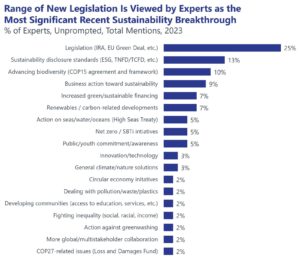As the chorus of voices calling for a level playing field for farmers and ranchers grows, the Biden-Harris administration rolled out the Action Plan for a Fairer, More Competitive, and More Resilient Meat and Poultry Supply Chain. Central to the plan is a $1 billion allocation of American Rescue Plan funds to expand independent meat and poultry processing capacity.
As one of the nearly 450 commenters, NRDC called on the administration to break up the power of Big Meat and giving smaller-scale facilities a fighting chance. Building out a dispersed network of small and mid-sized slaughterhouses and processing facilities rather than a few large ones offers multiple benefits, including rural economic development, new markets for farmers and ranchers, more diversified options for consumers and increased resilience in the face of climate change.
Large meat processors fail COVID stress test
The COVID-19 pandemic continues to challenge our food and farming systems, bringing to light record numbers of families facing hunger and food insecurity, deepening financial losses for farmers, unsafe health and safety conditions that threaten our essential farm and food chain workers (many of which continue), and more.
The pandemic also revealed deep vulnerabilities in our highly centralized and concentrated meat processing system, dominated by a few massive commodity meatpackers and not nearly enough smaller facilities. The shutdown of several meatpacking plants in 2020 left too many producers without access to slaughter and processing facilities, and too many animals killed with inhumane and environmentally harmful methods.

Meanwhile, many large processing plants defiantly remained open, putting workers in harm’s way.
Yet for small and mid-scale farmers and ranchers across the country, the lack of access to viable slaughter and processing facilities did not start with the pandemic. In fact, the pandemic shined a spotlight on patterns and dynamics of exploitation that have been playing out in many parts of the country for decades.
This lack of viable processing channels leaves farmers and ranchers with few market options and hampers the growth potential of the local and small-scale, sustainable meat production such as 100 percent grass-fed, at a time when consumer interest in these types of products is high.
Hope for reform
The $1 billion in funding from the administration’s new action plan is an opportunity to pivot our livestock sector in a new direction. For far too long, a handful of commodity corporations such as Tyson, Smithfield, Cargill and JBS benefited at the expense of farmers, ranchers workers and the environment. These critically needed resources will enable the expansion of small-scale meat and poultry processing capacity; increase worker safety; develop career training programs that turn meat processing into a valued, highly skilled profession across the country; and reduce barriers to enter federal inspection programs.
Yet this only scratches the surface of much-needed change. We will be closely watching the administration’s upcoming proposal to reform the Packers and Stockyard Act (PSA), an underused regulatory tool to protect farmers, ranchers and the public from large agricultural corporations that has not been serving its purpose for far too long.
The $1 billion in funding from the administration’s new action plan is an opportunity to pivot our livestock sector in a new direction.
We will be looking for USDA’s proposed rules to address a variety of unfair practices in the commodity markets and ensure that meat and poultry purchasers are not unduly favoring large operations or using unfair one-sided contracts with producers.
USDA should also go further, to identify a wide range of practices that dominant packers use to unfairly profit and limit market entry, at the expense of worker, environmental and community health.
At this moment, when unprecedented attention is paid to food and climate justice, it’s more important than ever to reign in large, industrial companies that are harming workers, rural communities and our environment.
This post originally appeared on NRDC's Expert Blog.
Source: https://www.greenbiz.com/article/how-help-level-playing-field-small-farmers-and-ranchers








